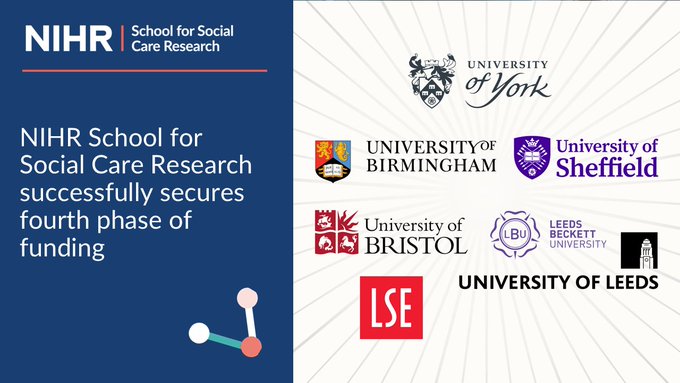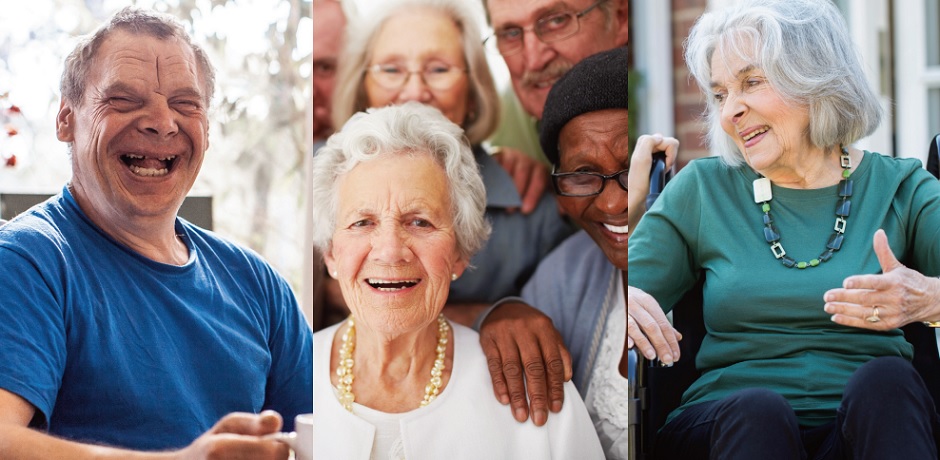)
Impact of caring on young people
There are high personal and economic costs for young adult carers, research finds
Young people (16 to 25) who provided care were found to: be less likely to be in employment, have lower earnings from paid employment, and have poorer mental and physical health than equivalent young people who did not provide care
Current social care practice seeks to prevent negative impacts of caring on young people and improve their lives. Care Act 2014 and Children and Families Act 2014 provisions include an assessment of whether caring has an impact on young people’s wellbeing, personal development, physical and mental health, and ability to participate fully and fulfil their aspirations in education and employment. This has largely focused on those aged 16-18.
A study led by Nicola Brimblecombe from the London School of Economics and Political Science, has found numerous negative consequences to young people aged 16 to 25 who are providing care, with the costs to the state associated with these negative impacts estimated at £1 billion a year. Individual young carers also experienced financial costs.
The study aimed to find out the impacts of caring on young people, including economic impacts, and whether and in what ways services provided for an individual with care needs can also support young people providing care, in particular their education, employment and health. It focussed on young people in England aged 16–25, caring for an adult. Methods included analysis of national data, an online and paper survey completed by 188 young adult carers; and in-depth interviews with 14 survey participants.
Impacts of providing care
The research found that young people who provided care were found to: be less likely to be in employment, have lower earnings from paid employment, and have poorer mental and physical health than equivalent young people who did not provide care. The results showed that, compared to non-carers, carers:
- were twice as likely to have left employment and become unemployed in the previous 12 month period
- had worse physical and mental health
- were about £160 worse-off per month
- paid £741 less in tax per year
- claimed £44 per month more in welfare benefits
- cost the health service £289 more per year.
Role of formal social care services
The association between receipt of care for the person with care needs and the impacts of providing care on young people’s lives was mixed. Services could have negative as well as positive effects and, in many cases, were not provided in sufficient amount or the right type to prevent young people from carrying out levels of care that impacted on their employment, education and health.
In contrast with previous findings on working-age carers, effects of caring on employment were reported more frequently in the survey and national data when services were received than when they were not, even accounting for carer’s circumstances and care hours provided.
Receipt of services
In the survey, half of the young people felt that more services were needed by the person they supported and, despite receipt of services, the majority were still providing personal or emotional care and/or high hours of care. In some cases not enough services were received to start with. In others, service provision had not responded to changing support needs and/or changing family circumstances.
Not receiving enough services was associated with young people being more likely to report impacts of caring on their education, health, and social life. Receipt of sufficient services had a positive effect on the young person’s wellbeing and stress, ability to participate in education, employment and social and leisure activities.
Aspects of services identified as helpful/less helpful included timeliness; access; involving the young person and taking into account their needs; relationship with practitioners; and continuity of care. The type of services provided was also important. The research team noted that services needed to be provided early and promptly.
The research concluded that young people who provide care and their families’ wide range of needs means that, as well as better services for the person with care needs, a holistic and system-wide range of support is required that also directly assists the carers.
Full summary findings
NIHR SSCR (2021) The Role of Adult Social Care in Improving Outcomes for Young People who Provide Unpaid Care, Research Findings 108, NIHR School for Social Care Research, London.
Further information
This study was funded by the NIHR School for Social Care Research and led by Nicola Brimblecombe at the London School of Economics and Political Science.
The findings were completed before COVID-19 and have been published to support NIHR SSCR’s requirement that findings from all completed studies are made publicly available.
















